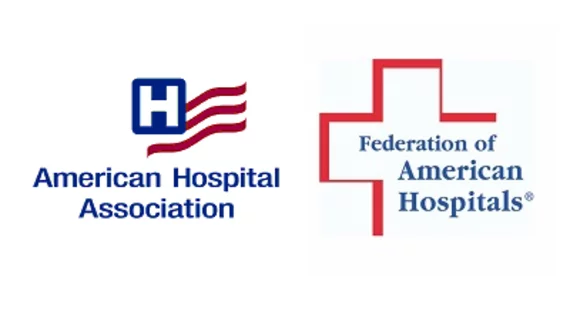Hospitals largely supportive of 2019 IPPS proposed rule
Fewer quality measures, a shorter reporting period for Meaningful Use requirements and an increase in uncompensated rate payments were all positives in the eyes of hospitals in their initial reaction to the proposed 2019 Medicare Inpatient Prospective Payment System (IPPS) rule.
The proposals for acute care and long-term care hospitals follow through on several CMS initiatives announced over the past year. For example, keeping with the spirit of the “Meaningful Measures” initiative, the proposed rule would eliminate 19 quality measures and “de-duplicate” another 21 across the agency’s value-based purchasing and quality programs.
Tom Nickels, American Hospital Association’s executive vice president of government relations, had predicted CMS would use their annual rules to push for progress on those initiatives and said the AHA is pleased with the initial attempts to loosen regulations and reduce administrative requirements.
“Specifically, we are pleased that in today’s proposed rule, the agency would permanently revoke the 25% Rule for long-term care hospitals,” Nickels wrote in a statement. “This will help ensure that patients get the care they need when they need it without facing arbitrary restrictions by non-patient-centered regulations. We are also encouraged that this year’s rule begins to implement the Administration’s ‘meaningful measures’ initiative, a streamlined approach to quality measurement that can help ensure programs are focused on those core issues that are most critical to providing high-quality care and improving patient outcomes.”
As far as payments go in the proposed payment rule, acute care hospitals would receive a 1.75 percent operating rate increase along with a $1.5 billion increase in uncompensated care payments compared to the current fiscal year—with the total IPPS increase totaling 3.4 percent when factoring in all changes in the rule.
“The proposed increase in critically needed funds to treat the uninsured as well as the reduction in regulatory burden will also help enhance access to quality care for all patients,” said Chip Kahn, president of the Federation of American Hospitals (FAH).
Kahn also praised CMS efforts “to empower with information about their medical records and costs of care,” referencing the proposed rule’s provisions on promoting interoperability as well as requiring hospitals to post standard prices for treatments online. Cletis Earlie, chair of the board of trustees for the College of Healthcare Information Management Executives (CHIME), praised the emphasis on interoperability and consideration of burdens caused by Meaningful Use, though he added a word of warning about moving too fast with some reforms.
“We continue to urge caution as CMS moves ahead with changes to ensure that they facilitate quality care and lead to measurable improvements,” Earle said in a statement.
On the IT side, Nickels and the AHA praised the “more flexible, performance-based approach” to Meaningful Use, which will now be renamed “Promoting Interoperability,” as well as limiting the reporting period to 90 days in 2019 and 2020.
The one negative Nickels found was CMS requiring the use of 2015 certified EHR technology (CEHRT) in 2019. Those standards have been delayed for several years and CMS chief medical officer Kate Goodrich said in March “we are not backing down” on requiring it starting in 2019.

